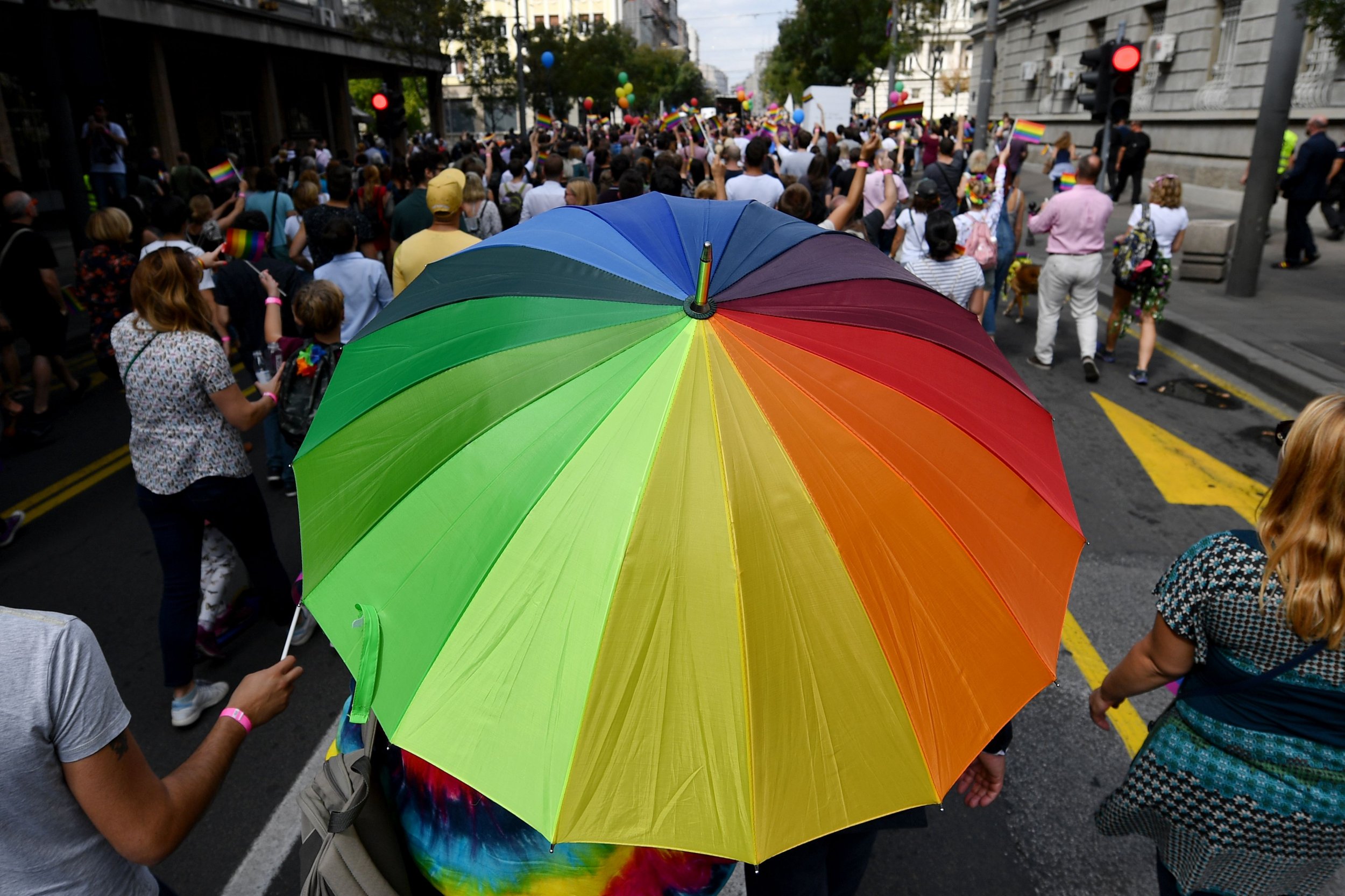
A new study in a major journal has found a weak association between several genes and sexual orientation. However, that doesn't mean that science has identified a "gay gene" or anything like it—and some scientists have cautioned against overinterpreting the findings.
Regions on two chromosomes seemed to differ the most between people who identified as gay and those who identified as straight, according to a study published in Scientific Reports on Thursday. This is the first time an analysis, known as a genome-wide association study, on this topic has been published in a peer-reviewed journal. However, on the whole, the genomes of gay and straight men were not significantly different.
"We know that sexual orientation has some hereditary or genetic contributions," Dr. Alan Sanders, a psychiatrist at NorthShore University HealthSystem Research Institute and an author of the paper, told Newsweek. "A common scenario in this kind of research is that you'll hear people use a sort of shorthand like 'the gay gene,' which is not really accurate at all."
Sexual orientation may spring only in part from a person's genes. Sanders estimated that contribution might be about 30 percent; other factors in society and the environment likely also play a large role in shaping a person's sexual identity.
However, these results come with a raft of caveats. The sample was limited in several ways: about 1,000 gay men—which isn't that many people for this kind of study—were recruited at events like gay pride parades and had their genomes analyzed. All of the men were white. And people who identified as bisexual were excluded from the analysis.
Two scientists who provided comments on the paper through the Science Media Center, a London-based science communication organization, were critical and cautious about the findings.
"The sample size is small, the results have not been replicated in an independent study and the level of evidence presented doesn't meet the threshold of significance typically required within the field," wrote Gil McVean, a statistical geneticist at the University of Oxford. "I don't think the work would have been published if it were on a less controversial topic. It is—at best—preliminary."

Indeed, the study really only showed that two things happened at the same time: these gene regions varied between the two groups of men and one set of the men reported being gay. And plenty of things can happen at the same time without being directly related. As Robin Lovell-Badge, a developmental biologist at the Francis Crick Insitute, wrote, "The increase in value of my flat correlates with my increase in age—but I doubt that there is any causal relationship."
"Even if a gene variant does show some correlation with sexual orientation, this does not mean that the gene is in any way responsible for being gay," he wrote. "It just means it has some association with a trait that is more likely to found in the relatively few people involved as subjects in the study. This could be better social awareness or being brave enough to acknowledge that they are in a minority."
Studies on the biological or genetic underpinnings of sexual orientation have been controversial before. A 2015 study attracted a firestorm of criticism for implying that modifications to the way genes work could be linked with sexual orientation. In September 2017, researchers who developed a face-scanning algorithm that they claimed could identify a person's sexual orientation from photos faced a similar outcry from organizations including GLAAD and the Human Rights Campaign, after which the journal that published the study started an ethical review of the work, according to Inside Higher Ed.
However, Sanders plans to continue research in this area. "Sexual orientation is somewhat understudied scientifically, but a pretty important area to biology and to different societal debates and whatnot," he said. "Sure, there's some controversy in things like this. But I guess we've got a pretty thick skin at this point. Part of that, I think, reflects that people are interested and curious about these things."
Uncommon Knowledge
Newsweek is committed to challenging conventional wisdom and finding connections in the search for common ground.
Newsweek is committed to challenging conventional wisdom and finding connections in the search for common ground.
About the writer
Kate Sheridan is a science writer. She's previously written for STAT, Hakai Magazine, the Montreal Gazette, and other digital and ... Read more
To read how Newsweek uses AI as a newsroom tool, Click here.








